North Korea -- it's a country everyone's familiar with, although usually only for its "hilariously" crazy leader, Kim Jong Un, and his threats of nuclear attacks. Kim Jong Un bombards media with assurances that North Korea and its citizens are more than surviving -- they are flourishing. The people of North Korea are often overlooked, at best labelled as brainwashed and simply tossed from our thoughts.
Here's the truth: In the 1990s, North Korea experienced a famine that killed an estimated 3.5 million people. In a country of about 22 million people, that's 16 percent of the population. And North Korea's government just announced that it's going to happen again.
Even in recent, relatively prosperous years, the World Food Programme has noted that "more than 82 percent of households do not have acceptable household food consumption during the lean season." This means that, in order for a food shortage to be considered a famine -- especially by the North Korean regime -- it has to be much, much worse. And it was.
The famine in the 1990s enveloped the entire country, resulting from several years of terrible crop yields and the collapse of the Soviet Union, which donated hundreds of thousands of tons of food to North Korea each year. The famine destroyed entire families. Morality and kindness were left to rot in the darkest places of people's souls, because such things cannot feed you or keep you alive. "Under the Same Sky" by Joseph Kim is a very detailed look at the brutality that people were driven to by desperation, told from the first-hand experience of Joseph Kim himself.
Most people resorted to foraging for edible plants or ripping grass from the ground to boil and eat -- there simply wasn't enough to go around, and rats, rabbits and dogs became scarce. When parents couldn't feed their children, they would abandon them in the marketplace so that they wouldn't have to watch them starve, or with the hopes of saving their other children from starvation by having one less mouth to feed. Homeless and orphaned children littered the marketplace and other public areas, begging for food.
Joseph Kim became one of these children himself, relying on begging and stealing to survive on his own. In an interview with NPR books, he describes this chapter of his life, saying that "[i]n order to survive as a homeless, probably one of the first things that you have to do is give up your human dignity...You also have to cross the line where you have to stop worrying about or thinking about morality. I was taught in school don't steal but if I don't steal it, I can't survive."
Many of these homeless children died of starvation, hypothermia, or simply disappeared without a trace -- they were prime targets for people who began to attack, butcher and eat them or sell their meat in order to survive. Most children could no longer attend school because they needed to devote every scrap of energy into finding a way to feed themselves or their family, but this is a crime. If they were caught skipping school, they would be sent to a detention center, which is a nice way of saying a limited stay concentration camp for children. Joseph Kim also experienced a period of time here, telling readers that
"[e]ven though I'd been homeless for more than two years by then, and had dealt with gangsters and starvation, the place terrified me. The day before, I'd seen a teenager beaten so severely I was sure he was brain-damaged, and darkness had brought the shrieks of girls being raped in the next room" (1).
The famine brought out the worst in people. They wanted to survive no matter what, and that is exactly what many people did. Those who couldn't let go of their morals, those who couldn't make hard, often terrible decisions over and over again in order to prolong their lives one more miserable day, did not survive the famine. Kindness and trust, even among families, evaporated and was carried from North Korea on the wings of famine.
The coming famine will do the same exact thing. This is a guarantee.
Why does this matter to us? Why should we weigh ourselves down with such dark, depressing and brutal facts when we cannot march into North Korea and solve all of its problems?
This is why: We're all human -- even if we can't do anything as a country to help the North Korean people, the least that we can do for them is refuse to bury our heads in the sand. We can look unblinkingly yet compassionately upon the death, suffering and oppression in North Korea instead of making fun of its crazy leader. He is insane, but he's not funny. He's a mass murderer of his own people.
We can help in small ways; we can give to charities like Liberty in North Korea (LiNK), which helps North Korean refugees in a tangible way, and we can spread awareness so that other people will know, so that we will stop looking at Kim Jong Un as a joke and start looking at the suffering and oppression of the North Korean people. The more awareness there is, the more people there are to give to nonprofits like LiNK. We can give them the power to change the lives of more and more people, who in turn will change others. One person will branch out to ten, and those ten will branch out to a hundred, and pretty soon we will have made a bigger difference than we ever thought possible.
To learn more about LiNK, donate, or shop at its store (100 percent of the proceeds go to the North Korean people), go here. You can also buy Joseph Kim's novel on the LiNK website.
To learn more about Joseph Kim's life during the famine and escape from North Korea, watch his TED talk here.




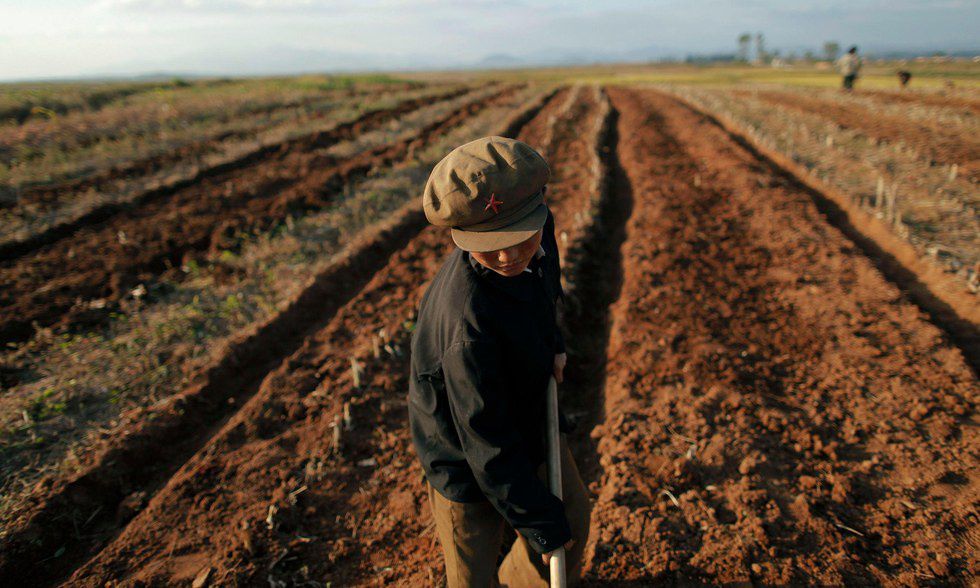
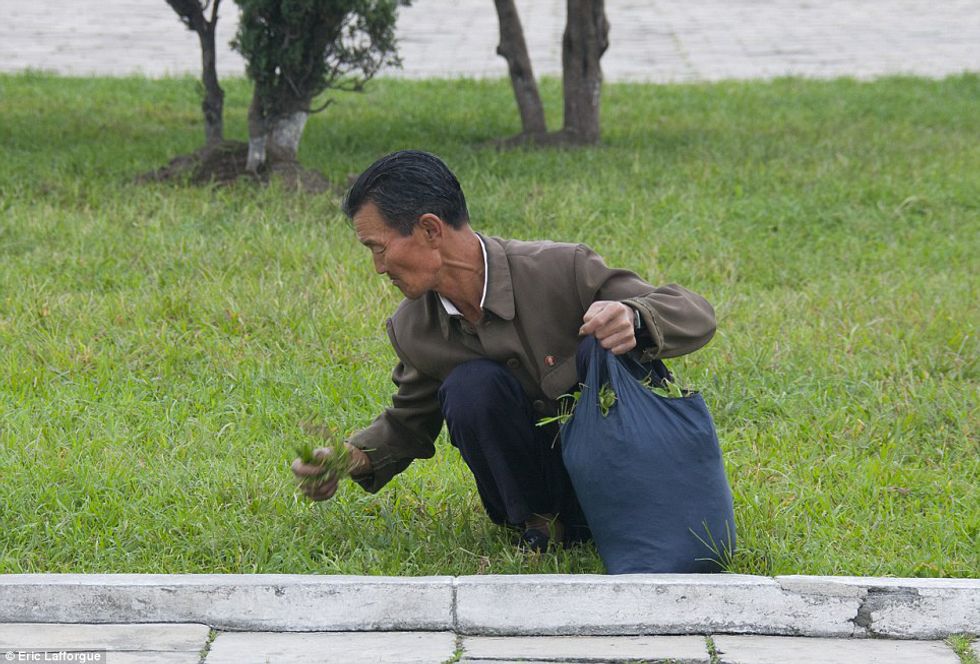
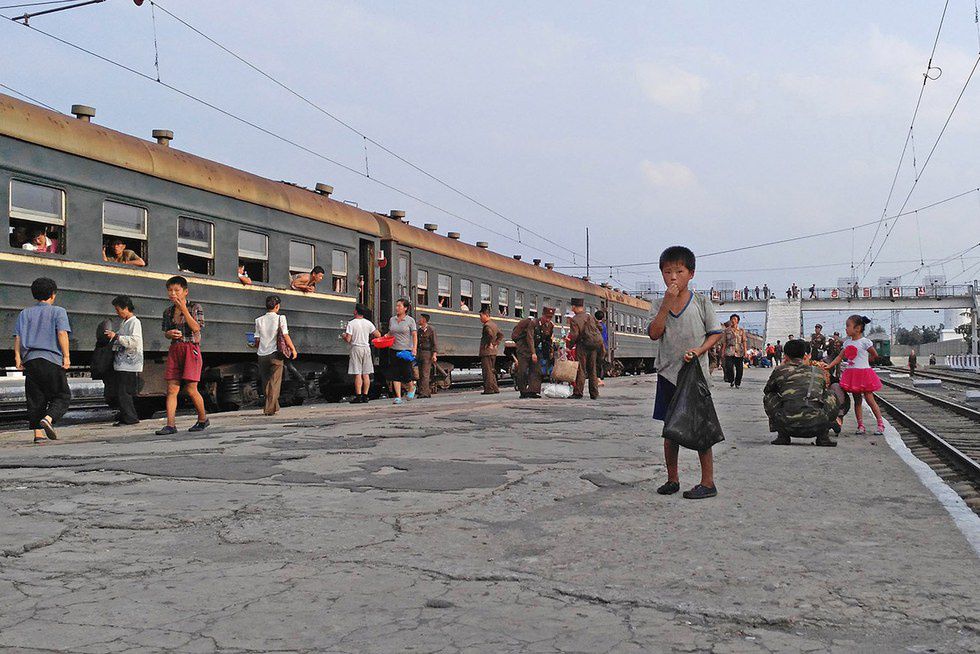
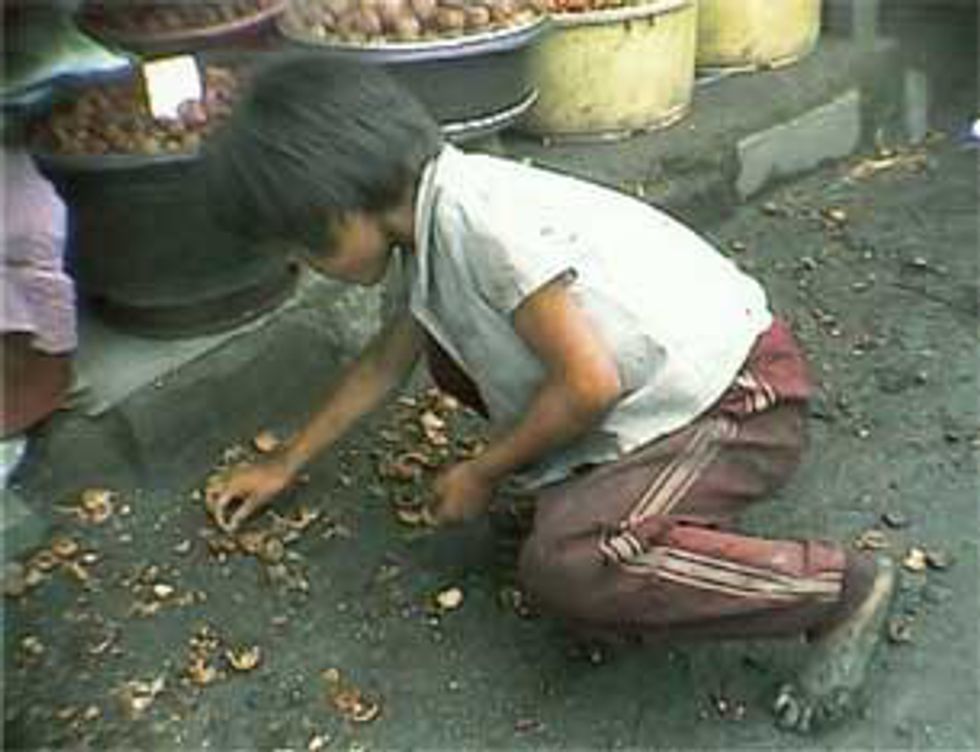
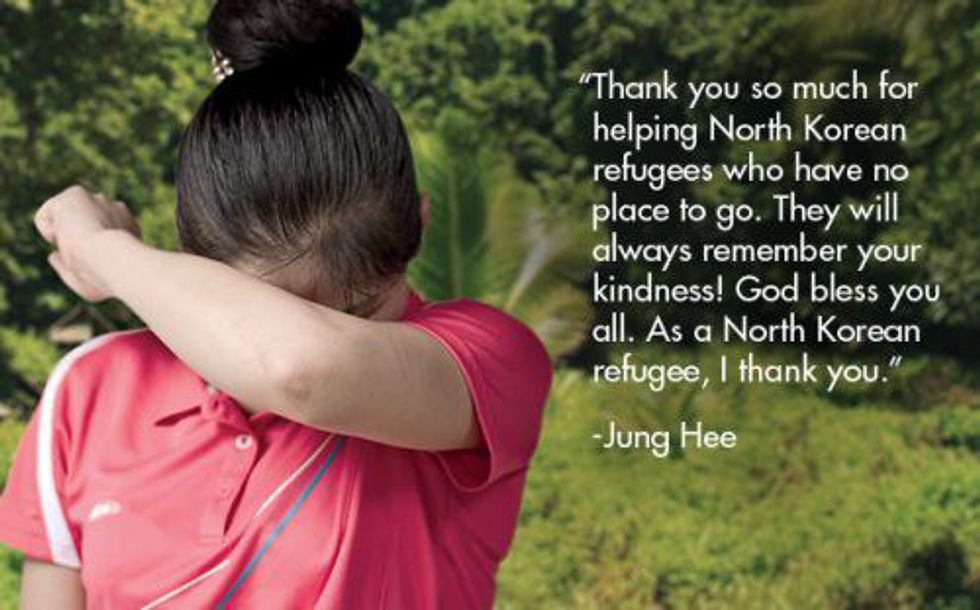




 The minimum wage is not a living wage.
StableDiffusion
The minimum wage is not a living wage.
StableDiffusion
 influential nations
StableDiffusion
influential nations
StableDiffusion












